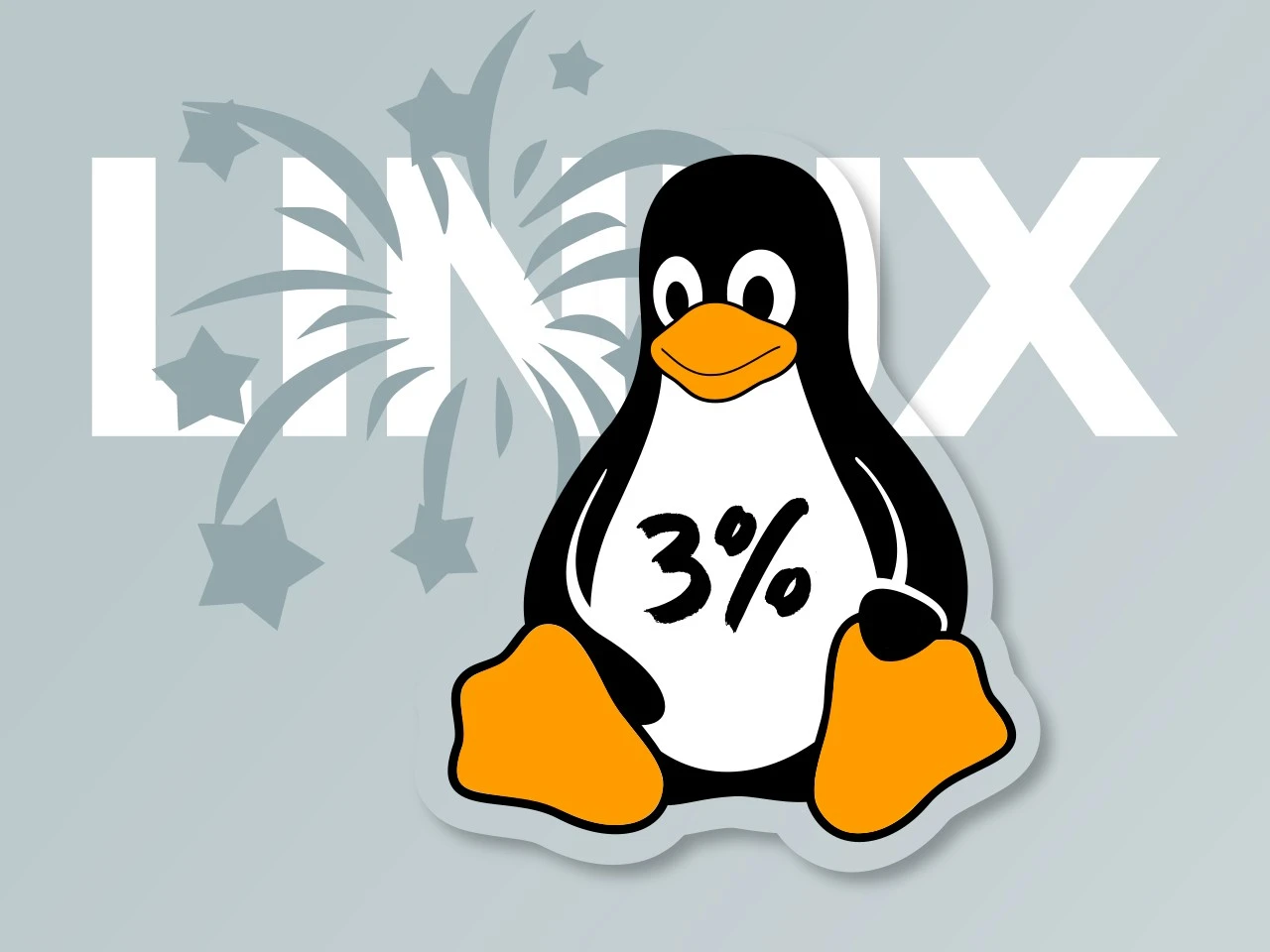The year of Linux on the desktop is closer. Linux reaches 3% of desktops
The year of Linux on the desktop is closer. Linux reaches 3% of desktops

web.archive.org
After 30 Years, Linux Finally Hits 3% Market Share

The year of Linux on the desktop is closer. Linux reaches 3% of desktops

After 30 Years, Linux Finally Hits 3% Market Share
